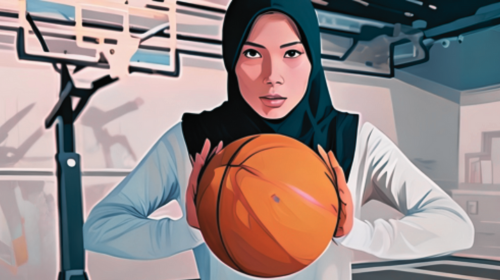You can’t wear that!

Share
The French government has banned French athletes from wearing the hijab during international sports competitions. They say this is to keep religion separate from public life, following the country’s rules on secularism. However, many people disagree with the ban, arguing that it unfairly targets Muslim women and takes away their freedom to express their religion. Supporters believe it helps maintain fairness and equality, but critics think it could make Muslim athletes feel excluded and unwelcome. The decision has led to a lot of discussion and debate, both in France and around the world.
This short video provides some background and features Australian boxer and Olympian Tina Rahimi.
But what is the hijab and why do many Muslim women wear the hijab and other head coverings? ABC reporter, Amal Wehbe explains.
Additional Resources
Student Activities
- In a related, free online module you can view three short videos from people explaining the clothing they wear. The module, What are you wearing? includes interactive activities designed for upper primary students.
Professional Learning
- Discussing controversial issues can be difficult, but also important to do. Learn more about holding such conversations in our free teacher professional learning module, Dialoguing on Controversial Issues.
Further Exploration
- For more about the French Government’s ban on French athletes wearing the hijab during the Paris Olympics see this article from ABC news and this one from Amnesty International.
- Game Changers: Stories of Hijabi Athletes from Around the World features 13 inspiring athletes who are showing they don’t need to choose between their religion and their sport. Written by Charlene Smith and illustrated by Natalya Tariq, it is due for release in February 2025. Suitable for upper primary to middle secondary readers.
About the Author
Kathleen (she/her) is a former primary school teacher. Her family came to Australia from Scotland and Ireland in the late 1800s. She was born on Mandandanji country in Roma and now lives and works on Kabi Kabi country on the Sunshine Coast, Queensland.
Copyright
Metadata © Together for Humanity (except where otherwise indicated). Digital content © Together for Humanity (except where otherwise indicated). Video © Together for Humanity (except where otherwise indicated). All images copyright their respective owners. Text © Together for Humanity is licensed under a Creative Commons Attribution-ShareAlike 4.0 International License (CC BY-SA 4.0).
Copyright
Metadata © Together for Humanity (except where otherwise indicated). Digital content © Together for Humanity (except where otherwise indicated). Video © Together for Humanity (except where otherwise indicated). All images copyright their respective owners. Text © Together for Humanity is licensed under a Creative Commons Attribution-ShareAlike 4.0 International License (CC BY-SA 4.0).
- Stage: All
- Curriculum: HASS, English, Health & Physical Education
- Topics: Islam, sport, discrimination
